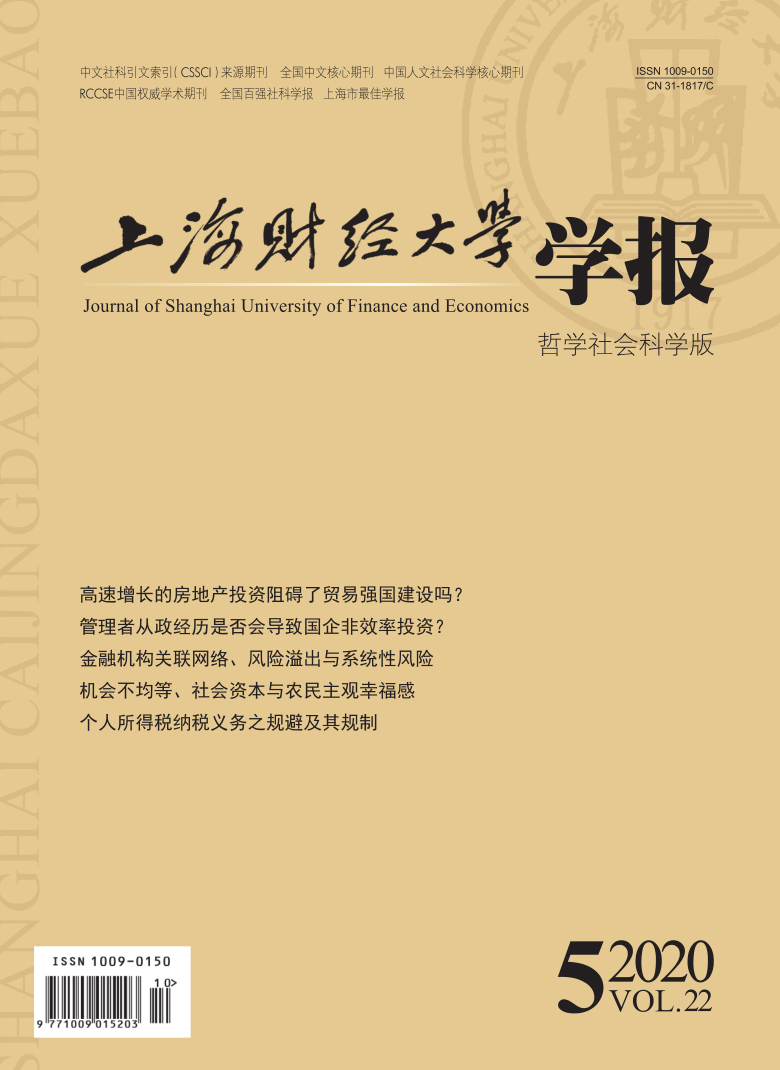越来越多国内企业通过“蛇吞象”式的方式并购国外品牌来完成其品牌形象的跃升。消费者对被并购品牌的态度是其消费行为的关键,喜好的消费者仍会保持对品牌的忠诚而继续购买,而厌恶的消费者则会转换品牌而流失。文章依托品牌真实性理论和传染理论构建了品牌真实性对品牌至爱、品牌厌恶、品牌信任、品牌忠诚和品牌转换的作用模型。研究结果表明,消费者对品牌真实性高的品牌会产生偏爱,进而信任该品牌并保持品牌忠诚,并购方品牌记忆起正向调节效应,而品牌真实性低的品牌容易招致消费者厌恶和品牌转换。相关结论不仅有助于企业理解并购后品牌真实性和被并购方品牌记忆对消费者态度和行为的影响,而且对并购后企业的管理决策有重要的参考价值。
招爱还是致厌:并购条件下品牌真实性作用研究
摘要
参考文献
1 党萌,张敬惠. “蛇吞象”式并购后的品牌真实性与消费者购买意愿[J]. 商业经济研究,2016,(4). DOI:10.3969/j.issn.1002-5863.2016.04.075
2 郭锐,陶岚,汪涛,等. 民族品牌跨国并购后的品牌战略研究——弱势品牌视角[J]. 南开管理评论,2012,(3). DOI:10.3969/j.issn.1008-3448.2012.03.004
3 何浏,王海忠,田阳. 品牌身份差异对品牌并购的影响研究[J]. 中国软科学,2011,(4). DOI:10.3969/j.issn.1002-9753.2011.04.021
4 金明. 消费者品牌钟爱与品牌忠诚:以品牌敏感为中介[J]. 商业经济与管理,2012,(8). DOI:10.3969/j.issn.1000-2154.2012.08.009
6 刘德文,高维和. 顾客参与对员工创新意愿的影响机制研究[J]. 管理学报,2019,(1). DOI:10.3969/j.issn.1672-884x.2019.01.012
7 汪涛,崔楠,夏鸿儒. 跨国并购情境下东道国消费者对目标企业品牌态度研究——基于消费者民族中心主义视角[J]. 中国地质大学学报(社会科学版),2012,(4). DOI:10.3969/j.issn.1671-0169.2012.04.010
9 徐伟,冯林燕,王新新. 国际化后本土品牌的真实性还影响购买意向吗?——消费者民族中心主义和合作地位的作用[J]. 商业经济与管理,2017,(10).
10 许晖,张海军,冯永春. 传承还是重塑?本土老字号品牌活化模式与机制研究——基于品牌真实性与价值迁移视角[J]. 管理世界,2018,(4). DOI:10.3969/j.issn.1002-5502.2018.04.009
14 Akbar M M,Wymer W. Refining the conceptualization of brand authenticity[J]. Journal of Brand Management,2017,24(1):14–32. DOI:10.1057/s41262-016-0023-3
15 Anderson J C,Gerbing D W. Structural equation modeling in practice:A review and recommended two-step approach[J]. Psychological Bulletin,1988,103(3):411–423. DOI:10.1037/0033-2909.103.3.411
16 Appiah D,Ozuem W,Howell K E,et al. Brand switching and consumer identification with brands in the smartphones industry[J]. Journal of Consumer Behaviour,2019,18(6):463–473. DOI:10.1002/cb.1785
17 Argo J J,Dahl D W,Morales A C. Consumer contamination:How consumers react to products touched by others[J]. Journal of Marketing,2006,70(2):81–94. DOI:10.1509/jmkg.70.2.081
18 Bartlett F C. Remembering: A study in experimental and social psychology[M]. Cambridge: Cambridge University Press, 1995.
21 Bergkvist L,Bech-Larsen T. Two studies of consequences and actionable antecedents of brand love[J]. Journal of Brand Management,2010,17(7):504–518. DOI:10.1057/bm.2010.6
22 Beverland M B,Farrelly F J. The quest for authenticity in consumption:Consumers’ purposive choice of authentic cues to shape experienced outcomes[J]. Journal of Consumer Research,2010,36(5):838–856. DOI:10.1086/615047
23 Breivik E,Thorbjørnsen H. Consumer brand relationships:An investigation of two alternative models[J]. Journal of the Academy of Marketing Science,2008,36(4):443–472. DOI:10.1007/s11747-008-0115-z
24 Bryson D,Atwal G,Hultén P. Towards the conceptualisation of the antecedents of extreme negative affect towards luxury brands[J]. Qualitative Market Research,2013,16(4):393–405. DOI:10.1108/QMR-06-2013-0043
25 Carroll B A,Ahuvia A C. Some antecedents and outcomes of brand love[J]. Marketing Letters,2006,17(2):79–89. DOI:10.1007/s11002-006-4219-2
26 Chaudhuri A,Holbrook M B. The chain of effects from brand trust and brand affect to brand performance:The role of brand loyalty[J]. Journal of Marketing,2001,65(2):81–93. DOI:10.1509/jmkg.65.2.81.18255
27 Chaudhuri A,Holbrook M B. Product-class effects on brand commitment and brand outcomes:The role of brand trust and brand affect[J]. Journal of Brand Management,2002,10(1):33–58. DOI:10.1057/palgrave.bm.2540100
29 Christino J,Silva T,Moura L R,et al. Antecedents and consequents of brand love in the smartphone market:An extended study of the impact of switching cost[J]. Journal of Promotion Management,2020,26(3):301–321. DOI:10.1080/10496491.2019.1699630
30 Coary S P. Scale construction and effects of brand authenticity[D]. California: University of Southern California, 2013.
32 Fetscherin M. The five types of brand hate:How they affect consumer behavior[J]. Journal of Business Research,2019,101:116–127. DOI:10.1016/j.jbusres.2019.04.017
33 Fine G A. Crafting authenticity:The validation of identity in self-taught art[J]. Theory and Society,2003,32(2):153–180. DOI:10.1023/A:1023943503531
34 Fritz K,Schoenmueller V,Bruhn M. Authenticity in branding—exploring antecedents and consequences of brand authenticity[J]. European Journal of Marketing,2017,51(2):324–348. DOI:10.1108/EJM-10-2014-0633
36 Ilicic J,Baxter S M,Kulczynski A. Keeping it real:Examining the influence of co-branding authenticity in cause-related marketing[J]. Journal of Brand Management,2019,26(1):49–59. DOI:10.1057/s41262-018-0109-1
37 Joshi M,Sanchez C,Mudde P. Improving the M&A success rate:Identity may be the key[J]. Journal of Business Strategy,2020,41(1):50–57. DOI:10.1108/JBS-08-2017-0115
38 King D R,Dalton D R,Daily C M,et al. Meta-analyses of post-acquisition performance:Indications of unidentified moderators[J]. Strategic Management Journal,2004,25(2):187–200. DOI:10.1002/smj.371
40 Leigh T W,Peters C,Shelton J. The consumer quest for authenticity:The multiplicity of meanings within the MG subculture of consumption[J]. Journal of the Academy of Marketing Science,2006,34(4):481–493. DOI:10.1177/0092070306288403
41 Lude M,Prügl R. Why the family business brand matters:Brand authenticity and the family firm trust inference[J]. Journal of Business Research,2018,89:121–134. DOI:10.1016/j.jbusres.2018.03.040
42 Manthiou A,Lee S,Tang L,et al. The experience economy approach to festival marketing:Vivid memory and attendee loyalty[J]. Journal of Services Marketing,2014,28(1):22–35. DOI:10.1108/JSM-06-2012-0105
44 Morhart F,Malär L,Guèvremont A,et al. Brand authenticity:An integrative framework and measurement scale[J]. Journal of Consumer Psychology,2015,25(2):200–218. DOI:10.1016/j.jcps.2014.11.006
46 Napoli J,Dickinson S J,Beverland M B,et al. Measuring consumer-based brand authenticity[J]. Journal of Business Research,2014,67(6):1090–1098. DOI:10.1016/j.jbusres.2013.06.001
47 Nemeroff C,Rozin P. The contagion concept in adult thinking in the united states:Transmission of germs and of interpersonal influence[J]. Ethos,1994,22(2):158–186. DOI:10.1525/eth.1994.22.2.02a00020
48 Parasuraman A,Zeithaml V A,Berry L L. Reassessment of expectations as a comparison standard in measuring service quality:Implications for further research[J]. Journal of Marketing,1994,58(1):111–124. DOI:10.1177/002224299405800109
49 Podsakoff P M,Mackenzie S B,Lee J Y,et al. Common method biases in behavioral research:A critical review of the Literature and Recommended Remedies[J]. Journal of Applied Psychology,2003,88(5):879–903. DOI:10.1037/0021-9010.88.5.879
50 Robinson R N S,Clifford C. Authenticity and festival foodservice experiences[J]. Annals of Tourism Research,2012,39(2):571–600. DOI:10.1016/j.annals.2011.06.007
51 Romani S,Grappi S,Dalli D. Emotions that drive consumers away from brands:Measuring negative emotions toward brands and their behavioral effects[J]. International Journal of Research in Marketing,2012,29(1):55–67. DOI:10.1016/j.ijresmar.2011.07.001
52 Rose R L,Wood S L. Paradox and the consumption of authenticity through reality television[J]. Journal of Consumer Research,2005,32(2):284–296. DOI:10.1086/432238
53 Rossiter J,Bellman S. Emotional branding pays off:How brands meet share of requirements through bonding,companionship,and love[J]. Journal of Advertising Research,2012,52(3):291–296. DOI:10.2501/JAR-52-3-291-296
55 Schweizer L. Organizational integration of acquired biotechnology companies into pharmaceutical companies:The need for a hybrid approach[J]. Academy of Management Journal,2005,48(6):1051–1074. DOI:10.5465/amj.2005.19573109
56 Spiggle S,Nguyen H T,Caravella M. More than fit:Brand extension authenticity[J]. Journal of Marketing Research,2012,49(6):967–983. DOI:10.1509/jmr.11.0015
57 Sternberg, Robert J. A duplex theory of hate: Development and application to terrorism, massacres, and genocide[J]. Review of General Psychology,2003,7(3):299–328. DOI:10.1037/1089-2680.7.3.299
60 Tax S S,Brown S W,Chandrashekaran M. Customer evaluations of service complaint experiences:Implications for relationship marketing[J]. Journal of Marketing,1998,62(2):60–76. DOI:10.1177/002224299806200205
61 Thomson M,Macinnis D J,Park C W. The ties that bind:Measuring the strength of consumers ,emotional attachments to brands[J]. Journal of Consumer Psychology,2005,15(1):77–91. DOI:10.1207/s15327663jcp1501_10
62 Vargo S L,Lusch R F. Service-dominant logic 2025[J]. International Journal of Research in Marketing,2017,34(1):46–67. DOI:10.1016/j.ijresmar.2016.11.001
63 Vrieze S I. Model selection and psychological theory:A discussion of the differences between the Akaike information criterion(AIC)and the Bayesian information criterion(BIC)[J]. Psychological Methods,2012,17(2):228–243. DOI:10.1037/a0027127
引用本文
王新新, 孔祥西, 姚鹏. 招爱还是致厌:并购条件下品牌真实性作用研究[J]. 上海财经大学学报, 2020, 22(5): 49-63.
导出参考文献,格式为:
本期封面
相关论文






 6440
6440  9567
9567

